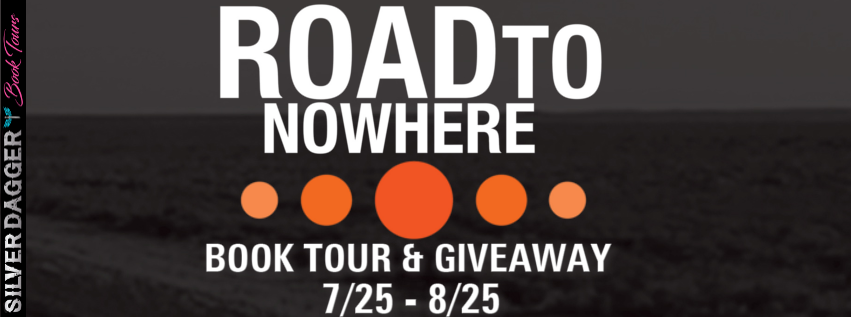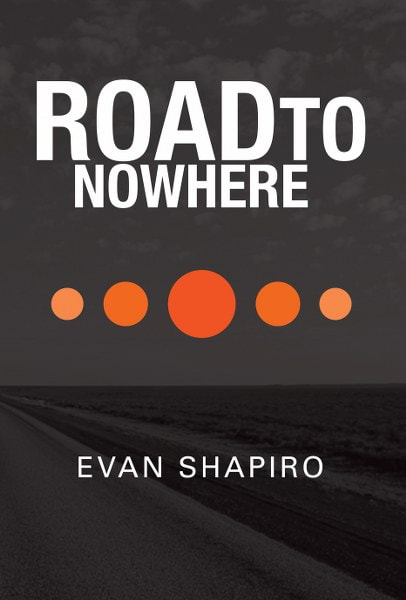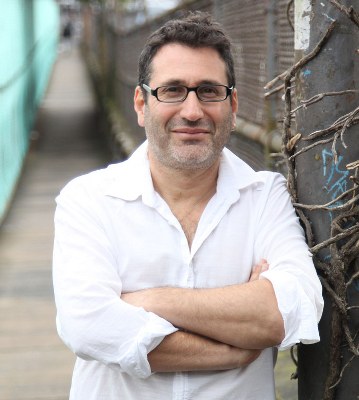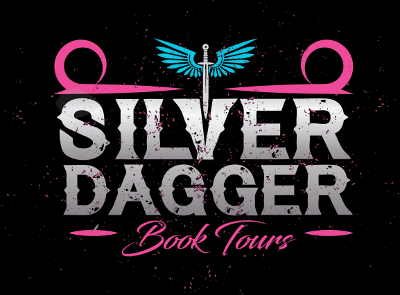Road to Nowhere by Evan Shapiro Book Tour and Giveaway :)
Road
to Nowhere
by
Evan Shapiro
Genre:
Cli-Fi (climate fiction), SciFi, Mystery, Thriller, Satire
Is
humanity on a Road to Nowhere?
What
forces are at play behind global warming and its threat to every
species? Is humanity irrevocably heading down a Road to
Nowhere?
This
near future page-turner, weaves conspiracy, murder, genius and love
into a fast-paced ride across the globe, through the absurd and
beyond.
Patrick,
Kirby, Ancient and Costas thrust us into the world of corporate
juggernaut, PetroSynth, where science, politics and corruption jostle
to determine our future. How can so much power over our planet be in
the hands of so few?
“This
book is the stuff of modern mythology, an exciting adventure with
intricate personalities leaving the reader in a state of agitated
‘not knowing’ until the very end. Can we succeed (we are all in
this one together) or will the corporates and their minions win out
only to abandon the planet in crisis? A racy and worthwhile read
capturing the zeitgeist of our times.”
Ian
Cohen – first Green MLC, NSW Parliament and Author of ‘Green
Fire’
MORE
REVIEWS
What
makes this debut novel from Evan Shapiro a thoroughly engrossing read
is that it is hard to pigeon hole into any particular genre. Part
science fiction, thriller, mystery and romp. A fun and at times
gritty ride. It's a page turner written with insight, irreverence and
is an apt observation of humanity's capacity for suffering and
destruction, yet with potential to make a positive change.
G
King
‘Road
To Nowhere’ gives us a thought-provoking glimpse into an
uncompromising future that brilliantly juxtaposes futuristic hedonism
with the bare fundamentals of human frailty.
M
Jury
Prelude
One
hundred and fifty million kilometres away from the Earth a big ball
of fire busily burns away, converting four hundred million tons of
hydrogen into helium every second in a seemingly endless nuclear
fusion. As
our world orbits the Sun, we revolve our lives around our own daily
concerns, forgetting that the big bright light in the sky, by its
very nature, creates our day and feeds our existence. Eight minutes
after its atomic birth the light that reaches Earth helps plants
photosynthesise, taking in carbon dioxide and releasing oxygen. Buried
by our needs, our hopes, our dreams, our petty dislikes, our great
loves and our monstrous hates, is a forgotten truth. It is so
intrinsically human that we are capable of pushing this thought to
the dark reaches of our primitive brains, that we know the words but
don't truly appreciate the concept. We can tell ourselves what we
like but there's no getting away from it. You can't hide from the
truth forever, and this is true, so listen up. Our
lives are just a by-product of a cosmic breath! Patrick
closed his notebook, content with another great thought committed to
paper. As he reclined into the comfort of his manager's plush office
chair the feeling of self-satisfaction gave way to a pervasive
self-doubt: how likely was it that a set of human eyes other than his
own would ever read his words? His thoughts would remain just that,
his own. To ensure that fate, he hastily removed the notebook from
sight and shoved it into his bag. He shifted focus from the sense of
his own mediocrity to that of his manager's. Leaning back further
into the leather-padded chair he surveyed the room with contempt.
Except for his position of authority, Patrick's manager was an
inferior in every respect. The man's gruff manner, his constant
barking of orders, ensured his control but alienated him from his
subordinates. To Patrick he was a man to be managed. There were ways
of dealing with him to get what you wanted: picking times when he was
most distracted to ask for personal leave, never presenting him with
an unsolved problem, always offering a solution no matter how stupid
it may seem. Like a dog gnawing into a bone your offering would be
viciously snatched and ripped into pieces, devoured before your eyes
and the remnants spat back at your feet. But he would be secretly
grateful you threw him something to sink his teeth into. Yes, he was
to be managed and by no means trusted. A company man through and
through, a company man who had access to information being withheld
from Patrick. He looked around the room again, attempting to intuit
where his superior would hide things he didn't want his subordinates
to find. The office
was dark other than the light emanating from the desk lamp and a few
beams of orange glow that crept in around the edges of the block-out
blind covering the large window on one side of the office. A glint of
light reflecting on the stainless steel filing cabinet in the corner
of the room pulled Patrick to his feet and drew him towards it. The vivid
orange light from outside was easing rapidly, receding as the day
drew to a close. Another twilight gone, another twilight spent alone,
the most precious part of the day nearly over and nothing but a long
lonely night ahead. With the sun setting fast Patrick had to increase
his pace if he didn't want his break and enter to be discovered, if
he didn't want to waste having braved the intense heat of the sun to
be in the office a few hours early. His colleagues would soon filter
in, once the cover of night gave them safe passage. He stood at the
locked cabinet and tugged ineffectually at the top drawer. Yes there
was definitely something in here that was not meant for Patrick,
making him all the more determined to gain access.
Back at the
desk he pulled open drawers, turned over papers, lifted up objects.
No key to be found, nothing. He spotted the coffee cup next to the
keyboard. 'Let me drop everything and fix your problem' branded on it
in large type. His manager would often sit behind his desk holding
the cup at eye level while subordinates talked to him, not answering,
just waiting for them to read the message, get the point and get out
of his office. If they took too long to register he'd soon throw them
out, barking at them as they retreated. In all the time Patrick had
worked with the man he'd never actually seen him drink from it. The
cup was just a prop, another object littering a cluttered desk.
Patrick picked it up, raised it to his eye in the manner of his
superior, fleshing out what it felt like to be such a dickhead,
before tipping it over and pouring the key into his palm. Patrick
rummaged around the now unlocked filing cabinet drawer. A bottle of
vodka, some retro porn magazines, there must be more the man was
hiding. Then bingo, official looking documents – 'Project Helios' –
it smelled clandestine. His eager fingers took hold of the report and
he could feel its suppression itching to be released. With the
document in hand he quickly covered his tracks – easy enough given
it was a mess when he'd arrived. Lock the cabinet, key back in the
cup, papers back in their stacks. He scooped up his bag and hit a
button on his manager's desk. The large block-out blinds rose
allowing the last vibrant orange rays of the sunset to fill the room,
removing all shapes and objects with its intense glare. Then as the
sun dropped behind the horizon and the room crept into darkness,
Patrick closed the office door behind him and moved quietly to his
workstation. Compared to
his supervisor's office, Patrick's desk was uncluttered and sparse.
He'd never given the space much thought, other than to avoid it. What
was the point in decorating? It annoyed him the way his co-workers
littered their spaces with photos of families and friends, displaying
them as some measure of achievement. 'This is what I have outside of
this place, what do you have?' Why should he offer a window into his
life to be assessed and ranked amongst the workforce? Worse still
were postings of platitudes and self-motivating mantras, stuck to
people's cubicles to help them through the day. At least Patrick
wrote his own and kept them in his notebook. He didn't force them
into his co-workers' field of vision the way they foisted their
banalities on him. His
standard-issue ergonomic chair took his weight but creaked and
squeaked as he shifted to find a comfortable position. He placed the
document on the desk and pulled the chair in closer, ready, a little
excited even, to discover what form of administrative ineptitude
middle management had planned: a restructure, job losses,
productivity gains? What idiocy would they be imposing on the
workforce next? As he began
to read he was overcome with an acute awareness of the moment. As the
words worked their way through his cerebral cortex he became filled
with the horror of their reality. This was no minor administrative
report. Patrick was discovering a truth that put his own concept of
'Cosmic Breath' into the realm of the pathetic. This was not a moment
to be treasured, not a moment to be loved, but as clear a moment as
any in his life, a milestone, a point of reference that couldn't be
erased now that it had made its mark and he realised that from this
point on his life wouldn't be the same. Patrick sat
with his hands frozen on the document and watched as workers began to
arrive, safe now under the cover of night. Safe from the very sun in
the sky that burned their lives into being but a sun now too strong
for them to be exposed to. He didn't
move, didn't respond to his co-workers' 'good evenings', didn't react
when the phone rang, didn't even realise he was continuing to
breathe. There was only himself, the document before him and what was
happening to his mind now that the information had transferred from
paper to grey matter, nothing else registered, nothing else could. Without
fully knowing why, he stood, took the document in one hand, his car
keys in the other and began to move. As he made his way steadily
towards the exit he passed the early starters - some of them he knew,
others he didn't, some he liked, others annoyed him, but they all
looked like ghosts to him now. This pounding idea forced into his
head by that wretched document made them all look dead, their
activities meaningless, anything they might have to say useless. The
information was infecting him – a vile fast moving virus corrupting
and consuming his system. The night
air gave little relief, the ground still hot from the day's
saturation of sunlight, the heat rising and filling his lungs. Every
breath made him light-headed. He reached his car – the auto cooling
made the interior a welcome relief from the outside air, but it
didn't bring him back, didn't stop the pounding urge to keep moving.
He started the car, capitulating to the unknown force propelling him
forward. With no sense of destination, only a need to move away from
that moment, that ground zero moment, he drove onto the open road.
His lone vehicle travelled in the opposite direction to the stream of
headlights making their way to work, collectively illuminating one
side of the road as his sole set of headlights moved freely,
seemingly unencumbered.
The
second of four children born to would-be bohemians, Evan grew up on a
diet of independent cinema, junk TV, Shakespeare and chocolate
biscuits. As a toddler he drank Dettol and shampoo and stuck forks
into power-points. Growing up he was often reminded by his family
that he was lucky to have survived past the age of five. While his
parents blamed him for being dangerously active and carelessly
inquisitive, he lays the responsibility squarely at their feet for
repeatedly leaving Dettol, shampoo and forks within his grasp.
He
likes to define the resulting confusion from his upbringing as his
'perspective' which he now relentlessly channels into works of
fiction.
These
day's he likes to prod people instead of power-points. He lives in
Sydney and divides his time between co-parenting, fixing his father's
TV settings, changing his mother's light bulbs, graphic design work,
writing and meditation. He claims to have found the secret to perfect
parenting, but as the answer is endless patience he's not sure it's
any use to anyone.
Fiction
Why is it
that fiction sits so fundamentally at the core of our society? We
invite fiction into our lives in many forms and as a species we
always have – from cave painting, oral storytelling traditions,
through music and song, visual art, books, radio, cinema, television
to digital media. We accept storytelling as a means of both sharing
ideas but also as pure entertainment and while clearly defining
content into two categories of fiction and non-fiction a fundamental
commonality remains. Fiction or non-fiction, our brain likes stories.
We respond emotionally to what we call reality in the same way as we
respond to what we call fiction. We laugh, we cry, we learn.
Is it such
a stretch then to propose that fiction holds its place of importance
because our lives are fictions too? That does not mean we can’t
call our lives real, or take them seriously, but our lives are
essentially the same as that of a character in a book, an extremely
elaborate and detailed construction. When you realise your brain’s
powerful ability to create and accept fiction, I think you can start
to see how to control it, how to shape it into what you desire rather
than going along with it as a passive passenger.
Follow
the tour HERE
for exclusive excerpts, guest posts and a giveaway!











Comments
Post a Comment